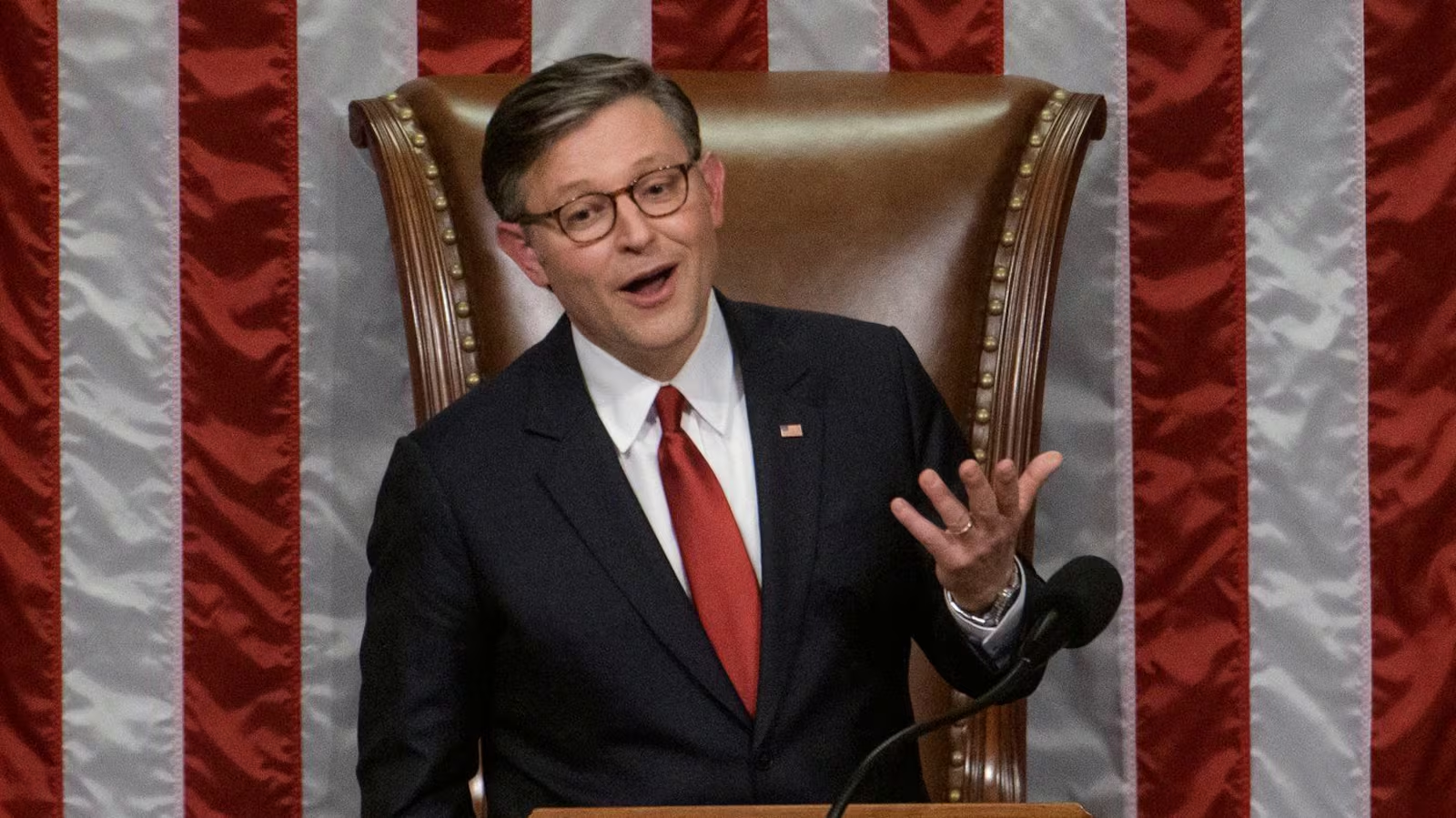In a razor-thin 218-214 vote, House Republicans pushed through President Donald Trump’s monumental tax and spending bill Thursday, securing a major legislative win ahead of the Fourth of July weekend. The nearly 900-page legislation, dubbed Trump’s “one big beautiful bill,” now heads to the president’s desk for signature on Friday.
The bill combines sweeping tax cuts—extending and expanding Trump’s 2017 tax overhaul—with deep cuts to social safety net programs. Among the highlights are new deductions for overtime and tips, and a $6,000 deduction for seniors earning under $75,000. Meanwhile, funding for Medicaid and food stamps is set to be slashed by $1.2 trillion, with stricter work requirements imposed.
“It’s going to be a great bill for the country,” Trump said en route to a campaign-style event in Iowa.
House Speaker Mike Johnson (R-La.), who presided over the final vote, framed the bill as a historic win. “With one big beautiful bill, we are going to make this country stronger, safer, and more prosperous than ever before,” he said, echoing the president’s celebratory tone. Republicans erupted into chants of “USA!” and played Trump’s rally anthem, “Y.M.C.A.,” during a post-vote ceremony.
A Battle of Vision—and Volume
Democrats were united in opposition, branding the legislation a “big ugly bill” that benefits the wealthy at the expense of vulnerable Americans. In a dramatic protest, House Minority Leader Hakeem Jeffries (D-N.Y.) delivered a record-breaking 8-hour-and-44-minute floor speech—delaying the vote well into the afternoon.
“This is a crime scene,” Jeffries declared, referencing the projected loss of health coverage for over 11 million people. “It’s a crime scene going after the health, safety, and well-being of the American people.”
Despite the bill’s partisan nature, two Republicans—Reps. Thomas Massie (Ky.) and Brian Fitzpatrick (Pa.)—broke ranks. Massie dismissed the bill as “not beautiful enough,” while Fitzpatrick cited concerns about the Medicaid rollbacks.
A Fiscal Gamble
The Congressional Budget Office estimates the bill will add $3.3 trillion to the federal deficit over 10 years. Critics argue that the tax relief is skewed heavily toward the wealthy: the Tax Policy Center projects a $10,950 average benefit for the top 20% of earners, compared to just $150 for the lowest quintile.
To partially offset the cost, the bill reduces green energy credits and invests $350 billion into defense and Trump’s immigration enforcement priorities, including the development of a new missile defense system dubbed the “Golden Dome.”
Political High Stakes
The path to passage was rocky. GOP leaders faced fierce internal divisions, with moderates uneasy about deep cuts to benefits, and hardliners pushing for more. Trump personally lobbied holdouts, and House leaders offered district-specific incentives to win over reluctant Republicans.
“This was a generational opportunity to deliver the most consequential set of conservative reforms in modern history,” said House Budget Chair Rep. Jodey Arrington (R-Texas).
But dissent came at a cost. Senator Thom Tillis (R-N.C.), who opposed the bill in the Senate, faced intense pressure from Trump allies and has since announced he will not seek re-election.
A Blow to Democratic Legacy
Beyond the fiscal mechanics, the bill represents a direct repudiation of Barack Obama’s Affordable Care Act and Joe Biden’s climate initiatives. By shrinking Medicaid and reversing key environmental investments, Republicans have effectively undone two Democratic presidential legacies.
Democrats warn of devastating impacts: “This bill rips food from the mouths of hungry children, veterans, and seniors,” Jeffries said.
Republicans counter that the bill is about economic growth and fiscal responsibility. “This is about preserving programs for those who truly need them and eliminating fraud and abuse,” Speaker Johnson said.

